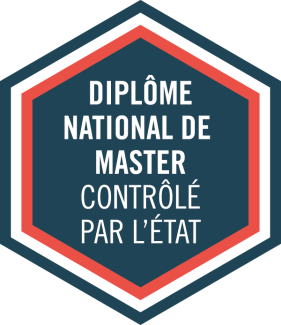Teaching method: Initial training or Continuing education
Location: Marseille and Aix-en-Provence
Duration of teaching : 3 years
Output level : Master
Department: AMSE

-
Objectives
The Magistere Ingenieur Economiste programme provides high level training in quantitative methods and economic analysis, leads to three diplomas in three years (a bachelor’s degree, a master’s degree and the Magistere diploma), and has a vocational orientation.
Strenghts
- Innovation: tools of economic analysis, statistics and Big Data programme in the training tracks, closely linked to the evolution of the professional world
- Proactive training: teamworking, project management training, pedagogy conducted in interaction with the professional world to confront theory with real operational applications, internships
- International: semester abroad, bilingual teaching, double degrees
- PhD programme for students desirous of following up with a doctoral thesis after the master
The Magistere aims to improve students’ knowledge of quantitative techniques not only as they are applied in economics but also in the fields of finance. The programme includes a number of modules from the BA in Economics and Finance, and the Master Economics so that students obtain both a Bachelor’s degree and a Master’s degree as well as the Magistere diploma.
Theoretical and technical knowledge will be developed for data analysis, undertaking projects, and for application in a vocational context through internships.
Structure
The first year of the Magistère Ingénieur Économiste is closely linked to two bachelor's degrees from the Faculty of Economics and Management:
- L3 Economics-Finance of the Economics-Management BA degree taught in Marseille,
- L3 Mathematics-Economics of the Mathematics and Computer Science Applied to Human and Social Sciences BA degree taught in Aix-en-Provence.
The second and the third of the Magistère are closely linked to the master Economics.
-
Teachings
Brochure magistère ingénieur économiste Janvier 2023.pdf- Year 1 : courses specific to the Magistère + some courses from the BA in Economics-Finance or from the BA Mathematics-Economics + big data courses + a six-week internship.
- Year 2 :
- first semester abroad (in Canada, Europe, United States) or year abroad in double degree or first semester of the Master Economics.
- second semester: big data courses + courses specific to the Magistère + some courses from the first year of the Master Economics + an eight-week internship.
- Year 3 : second year of the Master Economics + big data courses + end of study project tutored by professionals + end-of-studies internships in France or abroad (3 to 6 months).
Download the brochure for more information:
-
Syllabi of courses
- First year syllabi of courses taught in Marseille
- First year syllabi of courses taught in Aix-en-Provence
-
Admission
Who can apply?
Students who have already spent two years in higher education in Economics and Management, Applied Mathematics or in Classes Préparatoires (CPGE) and who are well-versed in quantitative techniques. Entry onto the Magistere programme is selective, based on written application and an assessment of how well a student has fared in the first two years of higher education. In certain cases, students may be invited for interview.
How to apply?
Entry to the Magistère is selective on the basis of the student's academic record after a Licence 2 or a CPGE. Candidates are likely to be called for an interview.
Apply at the time of admission on the dedicated platform.
-
International Mobility
A semester abroad is an integral part of the programme (examples of destinations: UK, Italy, Hungary, Portugal, United States, Finland, Canada, Norway, Spain, South Korea, Germany, Belgium, Portugal, Australia, etc.).
Students can also spend their second year (M1) abroad as part of the double master's degrees offered with the universities of Konstanz, Tübingen, Lisbon and Venice.
Courses taken abroad are validated by equivalence. Extensive English language training is an important part of the first year programme in order to prepare for mobility. -
Practical information
The internships are an integral part of the training and are taken into account in the final grade, 3 compulsory internships in 3 years. The student undertakes two applied economics projects. In the last year, she/he works on an End-of-Study (ESP) in data science which is an essential practical training complement. This is an operational project, supervised by both an academic teacher and a professional tutor. The students work on the project over a period of 5 to 6 months (October to March). They are often stepping stones to internships and then to jobs.
The Magistère maintains privileged relations with many companies and institutions. These relationships are reflected in the involvement of professionals, internship offers, recruitment "afterworks", job days, etc.
-
What's next?
AMSE trains economists and engineers who master the tools of economic analysis, statistics and Big Data. The professional integration of our graduates is one of our major concerns. To achieve this, the training programme includes English language courses, internships, and end-of-study projects supervised by professionals. The professional lecturers are very active in the curricula.
As with all recognised educational institutions, the attractiveness of AMSE is based above all on the quality of its students' professional future. Each year, our alumni meet with students during the school's career day, and present their career paths within AMSE and their jobs.
CONTACTS
Pedagogical managers
Administrative officers
J’ai eu la chance d’être présidence du BDE et de mettre en place des événements dont un qui nous a énormément tenu à cœur : le gala AMSE TOGETHER.
C’est utile d’avoir une multi-compétence qui va consister à savoir faire tout ce qui est programmation mais aussi l’interprétation et connaître les sujets sur lesquels on va travailler.
